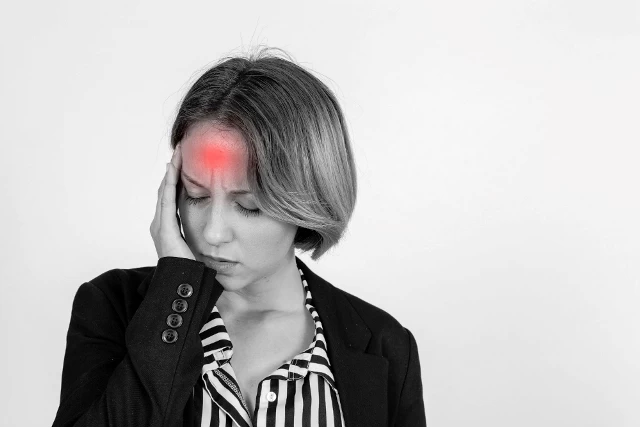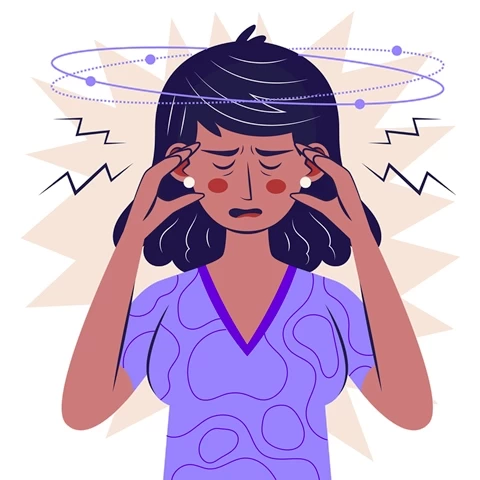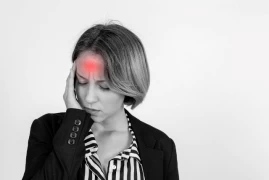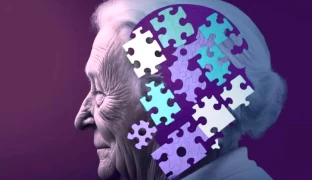
What Are the Health Effects of Migraine?
- What Are the Health Effects of Migraine?
- What is Migraine?
- Causes of Migraine
- Triggers of Migraine
- Health Effects of Migraine
- Preventing Migraine: What Should You Do?
- Medical Treatment for Migraine
What is Migraine?
Migraine is a clinical syndrome characterized by headache attacks that can last from a few hours to a few weeks. This condition can impact a person's life for many years. Migraine encompasses various symptoms, and the complaint of a headache is generally absent between attacks. Typically, symptoms such as nausea, heightened sensitivity to light and sound, accompany the one-sided headache, which is described as a throbbing pain. Genetic factors are thought to play a role in its development.
A common minor health issue we encounter today, migraine often presents itself with intense, one-sided headaches that can negatively affect the quality of life. It is an important condition that requires treatment.
Causes of Migraine
The origin of migraine is not limited to a single cause. This condition's causes are diverse and actually arise from a combination of interrelated factors. The following factors can contribute to the formation of migraine:
- Mental tension and stress factors
- Environmental influences:
- Bright and flickering light sources
- Computer-based games
- Excessive smoking
- Anger and frustration
- Feeling of hunger
- Irregular sleep patterns and sleep deprivation
- Climate changes
- Dietary habits and foods:
- Variations in dietary patterns
- Loss of appetite
- Excessive consumption of fermented alcoholic beverages and addiction
- Excessive coffee consumption
- Overconsumption of tea
- Artificial sweeteners
- Processed foods
- Varieties of pickles
- Physical and mental fatigue:
- Exercise periods between 40 and 50 minutes
- Excessive sleep (between 10 and 12 hours of sleep)
- Inadequate sleep (between 4 and 5 hours of sleep)
Triggers of Migraine
- Fasting or prolonged periods of hunger
- Skipping meals or irregular eating habits
- Mental and emotional stress
- Trouble with sleep and irregular sleep habits
- Intense light sources
- Effect of the menstrual cycle
- Transition to high-altitude areas
- Changes in weather and pollution
- South wind gusts
- Strong odors like perfume
- Alcohol and tobacco use
- Lack of energy and a feeling of weakness

Health Effects of Migraine
Essentially one of the most common types of headaches, migraine can also cause pain on one side of the temples, neck, and forehead. As a health-damaging condition, migraine can bring about various detriments. These negative outcomes include:
- Nausea and a tendency to vomit
- Blurred vision. A state near fainting, the body feels entirely under pressure and discomfort
- Dizziness and a risk of fainting
- Sensitivity to smells
- Slowed thinking
- Difficulty finding words while speaking
- Feeling down and struggling to concentrate
- Excessive emotional reactions
The aforementioned negative effects highlight that migraine doesn't only harm your physical health but also your mental well-being.
Preventing Migraine: What Should You Do?
In this context, it's crucial to avoid factors that trigger migraines. In other words:
- Adopt a regular sleep schedule
- Guide dietary habits towards consuming health-friendly foods
- Avoid sugar and artificial additives
- Stay away from substances like alcohol, tobacco, and drugs that pose serious health threats
- Engage in stress management
Implementing these approaches can minimize the impact of migraines and reduce their potential to harm you.
Medical Treatment for Migraine
Generally prescribed by neurologists for attack treatment, the migraine medications include the following:
- Simple and combination analgesics
- Nonsteroidal anti-inflammatory drugs
- Triptans
- Ergot derivatives
- Anti-emetics (anti-nausea medications)
- Neuroleptics (medications that block nerve activation)
- Beta-blockers
For preventive treatment, the following are used:
- Antidepressants
- Antiepileptic drugs (prevent seizure development)
- Serotonin antagonists
- Calcium channel blockers
- Substances like Botulinum toxin type A
Non-pharmaceutical treatments for migraines include:
- Migraine Botox
- Greater Occipital Nerve Block
Wishing you pain-free days…






